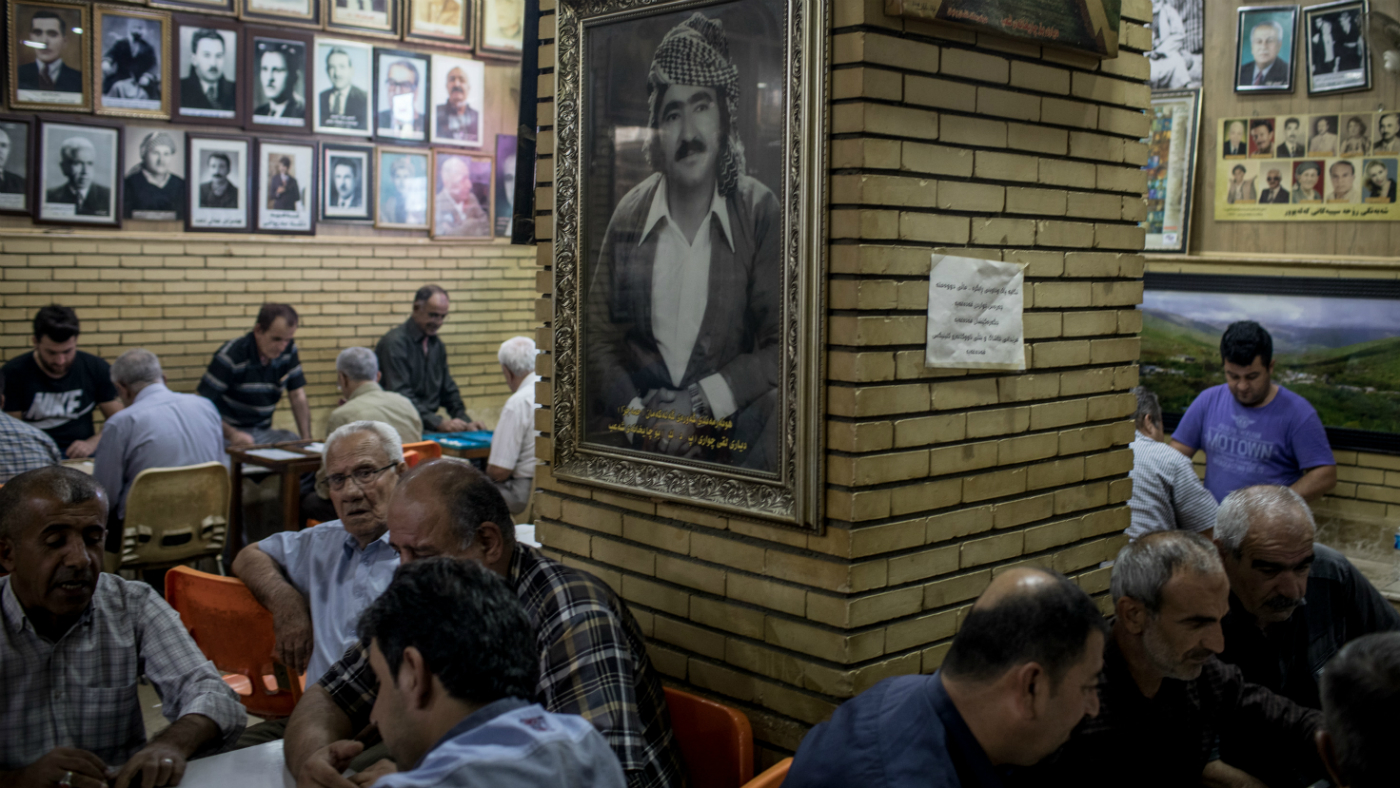Iraqi Kurdistan defies Baghdad with independence vote
UK and US fear referendum will take focus off battle against extremists

A free daily email with the biggest news stories of the day – and the best features from TheWeek.com
You are now subscribed
Your newsletter sign-up was successful
Iraq’s Kurdistan region heads to the polls today in a non-binding independence referendum that’s going ahead despite Baghdad’s threats that it won’t recognise the outcome or part with the region’s oil revenues.
Masud Barzani, President of the Kurdistan Regional Government, has called the vote the first step in a process to negotiate independence in a region that has played a major role in the campaign to drive Islamic State militants out of northern and western Iraq.
About 5.3m voters are registered. While preliminary results are expected early on Tuesday, there appears to be “little doubt that the result will be an overwhelming ‘Yes’”, Radio Free Europe reports. The bigger question is whether the voting results will destabilise the region.
The Week
Escape your echo chamber. Get the facts behind the news, plus analysis from multiple perspectives.

Sign up for The Week's Free Newsletters
From our morning news briefing to a weekly Good News Newsletter, get the best of The Week delivered directly to your inbox.
From our morning news briefing to a weekly Good News Newsletter, get the best of The Week delivered directly to your inbox.
“More than 30 million Kurds are dispersed across the borders with Syria, Iran and Turkey, which fear that the vote will embolden secessionist movements among their own minorities,” says Bloomberg.
The UK, US, Iran and Baghdad, as well as the UN, are concerned that the referendum could take the focus off Iraq’s war against extremists. Foreign Secretary Boris Johnson says the vote would “distract from the more urgent priorities” of defeating Islamic State and stabilising liberated areas.
The fight for control of the oil-rich region is also a battle about money. Iraqi Prime Minister Haider al-Abadi’s office issued a statement on Sunday urging foreign governments to stop importing crude directly from the Kurdistan region and restrict oil trading to the Iraqi government.
Disputes over land and oil resources are among the main reasons cited by the Kurdish government in its bid for independence, says Reuters.
A free daily email with the biggest news stories of the day – and the best features from TheWeek.com
Iraqi Kurdistan produces around 650,000 barrels per day of crude – 15% of Iraq’s total output. Much of that comes from Kirkuk province, which falls along the border in an area bitterly contested by Kurdish and Iraqi forces.
Why is the vote being held now?
The area known as Kurdistan, which consists of portions of modern-day Iraq, Iran, Syria and Turkey, was carved up by British colonial administrators and divided between the four countries after the First World War.
For Iraq’s brutalised Kurds, the lure of a free Kurdistan is particularly potent. Under Saddam Hussein’s Arab nationalist regime, upwards of 180,000 Iraqi Kurds are thought to have perished in mass executions, bombings and chemical attacks on civilians.
The impetus for the latest call for independence came from an unexpected quarter – Islamic State’s invasion of northern and western Iraq in the summer and autumn of 2014.
When government troops pulled back in the face of the IS onslaught in the summer of 2014, Kurdish militias seized the opportunity to fill the vacuum and take over the fight to liberate the region.
Now with the militant group on the verge of defeat and forced to surrender most of its territory in Iraq, the Kurdish Regional Government controls an area of land far beyond its official boundaries.
Beyond the territorial gains, the prominence of the Peshmerga at the head of the charge has played a valuable propaganda role, cementing the notion of Kurdish autonomy in the region and reinvigorating separatist sentiment.
-
 The Olympic timekeepers keeping the Games on track
The Olympic timekeepers keeping the Games on trackUnder the Radar Swiss watchmaking giant Omega has been at the finish line of every Olympic Games for nearly 100 years
-
 Will increasing tensions with Iran boil over into war?
Will increasing tensions with Iran boil over into war?Today’s Big Question President Donald Trump has recently been threatening the country
-
 Corruption: The spy sheikh and the president
Corruption: The spy sheikh and the presidentFeature Trump is at the center of another scandal
-
 Epstein files topple law CEO, roil UK government
Epstein files topple law CEO, roil UK governmentSpeed Read Peter Mandelson, Britain’s former ambassador to the US, is caught up in the scandal
-
 Iran and US prepare to meet after skirmishes
Iran and US prepare to meet after skirmishesSpeed Read The incident comes amid heightened tensions in the Middle East
-
 Israel retrieves final hostage’s body from Gaza
Israel retrieves final hostage’s body from GazaSpeed Read The 24-year-old police officer was killed during the initial Hamas attack
-
 China’s Xi targets top general in growing purge
China’s Xi targets top general in growing purgeSpeed Read Zhang Youxia is being investigated over ‘grave violations’ of the law
-
 Panama and Canada are negotiating over a crucial copper mine
Panama and Canada are negotiating over a crucial copper mineIn the Spotlight Panama is set to make a final decision on the mine this summer
-
 Why Greenland’s natural resources are nearly impossible to mine
Why Greenland’s natural resources are nearly impossible to mineThe Explainer The country’s natural landscape makes the task extremely difficult
-
 Iran cuts internet as protests escalate
Iran cuts internet as protests escalateSpeed Reada Government buildings across the country have been set on fire
-
 US nabs ‘shadow’ tanker claimed by Russia
US nabs ‘shadow’ tanker claimed by RussiaSpeed Read The ship was one of two vessels seized by the US military